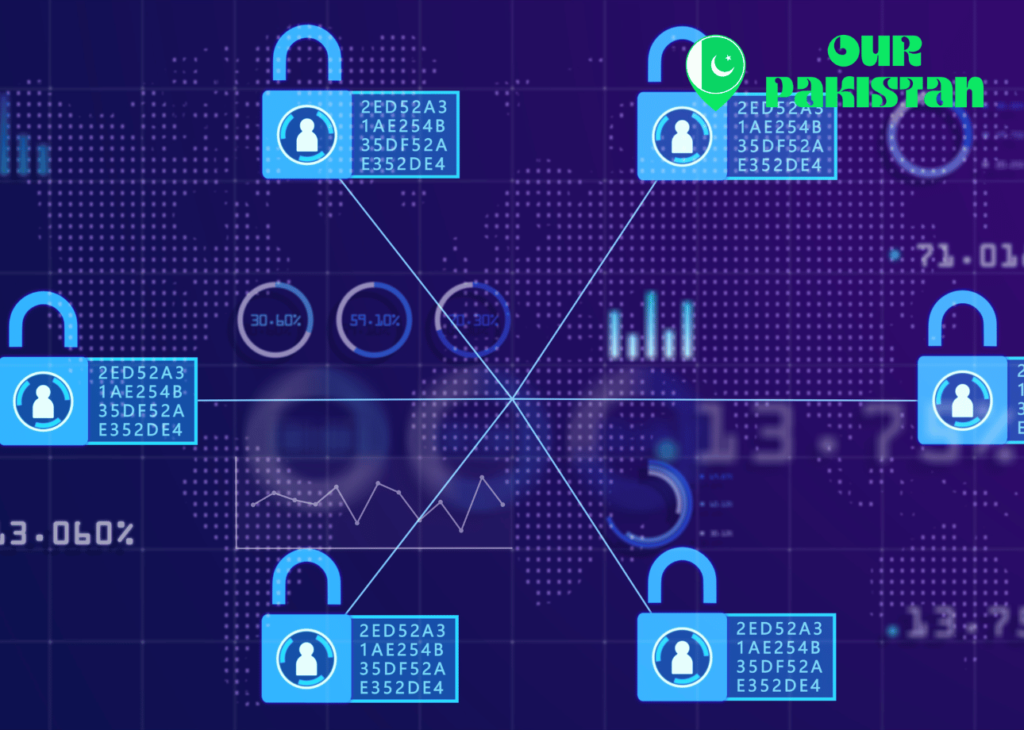Blockchain technology is a revolutionary concept that has gained significant attention in recent years. It is a decentralized and secure platform that enables the transparent and efficient transfer of digital assets. With its potential to revolutionize various sectors, there is a growing global interest in adopting blockchain technology.
Understanding Blockchain Technology
At its core, blockchain technology is a system that records and verifies transactions across multiple computers. It operates on the principle of using blocks, which are containers that hold a set of transactions. Each block is linked to the previous one through cryptographic hashes, ensuring the integrity of the data. Consensus mechanisms, such as Proof of Work or Proof of Stake, are employed to validate and add new blocks to the chain.
Decentralization is a crucial attribute of blockchain technology, where no single entity controls the entire system. Instead, participants in the network collectively maintain and validate the transactions. This distributed nature eliminates the need for intermediaries and enhances security and trust within the system.
Blockchain networks can be categorized into public, private, and hybrid. Public blockchains, like Bitcoin and Ethereum, are open to anyone and offer high security through their decentralized nature. On the other hand, private blockchains restrict access to a specific group of participants. Hybrid blockchains combine the characteristics of both public and private networks, allowing for increased scalability and privacy.
Blockchain Adoption in Pakistan
Pakistan is witnessing a growing interest in blockchain technology among various sectors. While still in the early stages, the potential applications of this technology are being explored and tested by both public and private entities.
The Government of Pakistan has recognized the transformative potential of blockchain technology and has taken initiatives to promote its adoption. It has established regulatory sandboxes to encourage innovation and has launched pilot projects to explore the usage of blockchain in sectors such as healthcare, finance, and supply chain management.

Pakistan’s public and private sectors are actively collaborating to accelerate blockchain adoption. Partnerships are being formed to develop blockchain-based solutions that can address challenges and improve efficiency in various industries. This collaboration aims to leverage the strengths of both sectors and create a conducive environment for blockchain innovation.
Applications of Blockchain in Various Sectors
Blockchain technology has the potential to transform numerous sectors in Pakistan. Here are some key areas where blockchain applications can make a significant impact:
Financial Services
- Streamlining cross-border payments: Blockchain can facilitate faster and more cost-effective cross-border transactions by eliminating intermediaries and reducing transaction fees.
- Improving transparency in banking operations: By recording and validating transactions on a transparent and immutable ledger, blockchain technology can enhance transparency and reduce fraud in banking operations.
- Digital identity verification for financial inclusion: Blockchain-based digital identities can provide individuals with secure access to financial services, promoting financial inclusion and reducing identity theft.
Supply Chain and Logistics
- Enhancing traceability and transparency in the supply chain: Blockchain can enable end-to-end traceability of products, ensuring transparency and reducing the risk of fraud or counterfeit products.
- Reducing counterfeit products and ensuring product authenticity: By recording every step of the supply chain on a blockchain ledger, the authenticity and provenance of products can be verified, helping to prevent the circulation of counterfeit goods.
- Improving logistics efficiency and real-time tracking: With blockchain, logistics companies can enhance efficiency by automating processes, optimizing routes, and enabling real-time monitoring of shipments.
Healthcare
- Securing patient data and medical records: Blockchain can provide a secure and tamper-proof platform for storing patient data, ensuring its integrity and privacy.
- Enabling interoperability between healthcare providers: By using standardized blockchain protocols, healthcare providers can securely share patient information and achieve interoperability, leading to better care coordination.
- Facilitating drug traceability and combating counterfeit medications: Blockchain technology can help track the movement of pharmaceutical products throughout the supply chain, ensuring their authenticity and reducing the risk of counterfeit medicines.
Government Services
- Ensuring transparent and tamper-proof voting systems: Blockchain-based voting systems can offer transparency, security, and immutability, ensuring the integrity of elections.
- Blockchain-based land registration and property rights management: By recording property transactions on a blockchain, land registries can enhance transparency, reduce fraud, and streamline property ownership procedures.
- Digitalizing government documentation for efficient record-keeping: Blockchain can provide a secure and decentralized platform for storing government records, improving accessibility and reducing the risk of data loss.
Challenges and Opportunities
As with any disruptive technology, blockchain faces regulatory challenges. The legal framework around blockchain and cryptocurrencies is still evolving, and governments need to develop clear regulations to ensure consumer protection and prevent misuse of the technology.
While blockchain technology offers enhanced security through its cryptographic protocols, it is not immune to risks. Privacy concerns arise due to the transparent nature of some blockchains, potentially exposing sensitive information. Additionally, as the technology evolves, new vulnerabilities may be discovered, requiring continuous efforts to enhance security measures.
Integrating blockchain technology with existing infrastructures poses technical challenges. Legacy systems need to be upgraded or replaced to leverage blockchain’s benefits fully. Interoperability between different blockchain networks and traditional systems also needs to be addressed for seamless implementation.
The growing interest and adoption of blockchain technology present significant opportunities for startups and entrepreneurs in Pakistan. By developing innovative solutions and services, they can contribute to advancing blockchain adoption and create new business models that leverage the technology’s decentralized nature.
Success Stories: Blockchain Projects in Pakistan
In Pakistan, a project was launched to track the supply chain of agricultural products using blockchain technology. This initiative aimed to ensure transparency, eliminate mediators, and provide farmers with fair prices for their produce. By recording every step of the supply chain on a blockchain ledger, consumers can verify the authenticity and quality of the agricultural products they purchase.
Case study: Blockchain-based remittance platform
A blockchain-based remittance platform was developed in Pakistan to address the challenges associated with traditional remittance methods. This platform enables secure, low-cost, and real-time cross-border transactions, benefiting both senders and recipients. By leveraging blockchain technology, the platform provides transparency and reduces fees, making remittances more accessible and efficient.

Case study: Blockchain-powered energy trading platform
Pakistan has also witnessed the implementation of a blockchain-powered energy trading platform. This platform allows individuals and businesses to trade excess energy generated from renewable sources directly with other users, eliminating the need for intermediaries. It promotes the use of renewable energy, reduces energy costs, and enhances energy efficiency.
Future Outlook of Blockchain Technology in Pakistan
Blockchain technology can drive economic growth and foster innovation in Pakistan. Streamlining processes, reducing costs, and increasing transparency can create new business opportunities and improve efficiency across various sectors. The government’s commitment to embracing blockchain technology further emphasizes its potential for economic development.
Soon, we can expect further expansion and adoption of blockchain technology in Pakistan. Sectors such as insurance, education, and intellectual property management will likely benefit from blockchain’s ability to enhance security, transparency, and efficiency. Additionally, integrating blockchain with emerging technologies such as the Internet of Things (IoT) and Artificial Intelligence (AI) may open up new possibilities.
Collaboration and partnerships are crucial to accelerate the development and adoption of blockchain technology. Governments, private companies, and academic institutions must work together to create an ecosystem that fosters blockchain innovation, promotes knowledge sharing, and collectively addresses challenges. By leveraging the expertise of different stakeholders, Pakistan can position itself as a leader in blockchain technology.
Conclusion
Blockchain technology holds immense promise for Pakistan in transforming various sectors. Its decentralized and secure nature, coupled with the growing interest and collaboration between public and private sectors, sets the stage for innovative solutions and increased efficiency. As Pakistan embraces blockchain technology and overcomes the associated challenges, it can play a significant role in the global blockchain ecosystem, driving economic growth and fostering a culture of innovation.